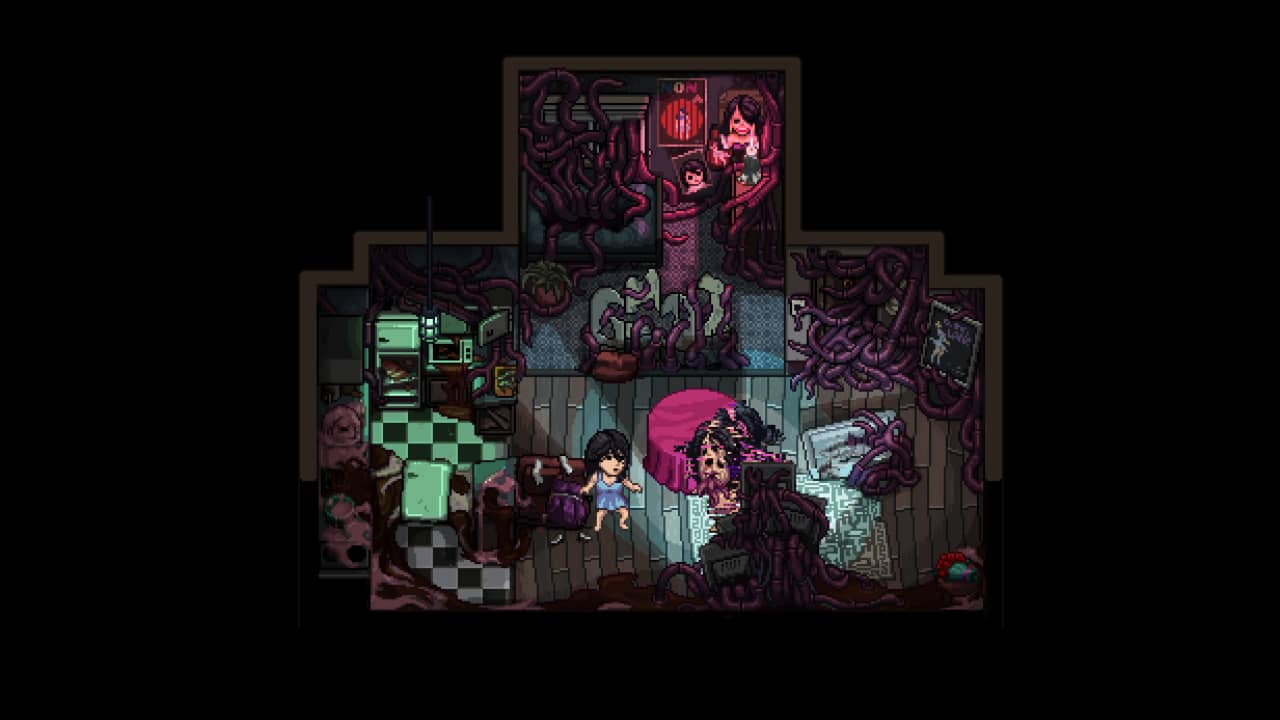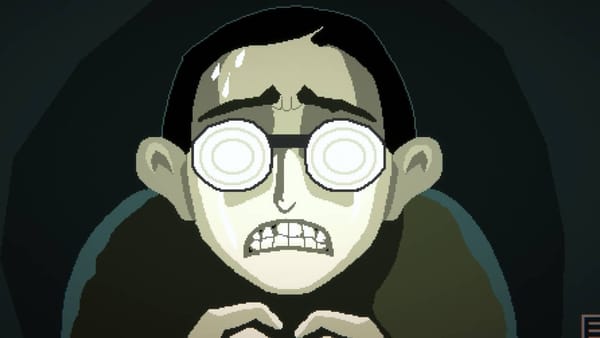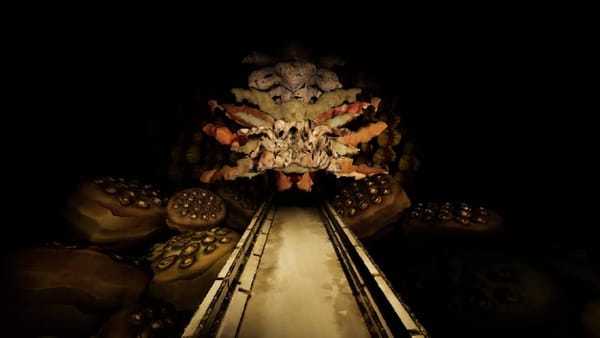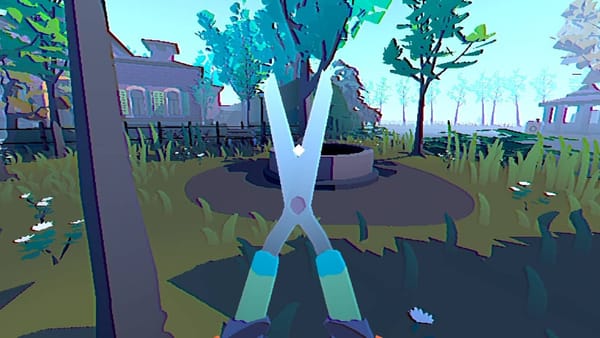You think you have problems; poor Gloria from Decarnation is burdened with them. Getting old, losing their job, lover, and quite possibly their sanity are some of the issues here. It only escalates her predicament when she has to face her problems head-on when there’s nowhere to run.
This psychological horror from Atlier QDB has been out for over six months, so it’s not hard to spoil it and reveal what happens. You won’t be getting that from me, as I encourage you to buy this game if story matters to you, and you’re a closet film buff.
When I think of pixel art games, it’s typically platformers, RPGs, and retro puzzlers. It’s not the type of aesthetic I’d associate on the same level as cinema, but Decarnation pulls the rug out from under one’s feet with some fantastic visuals – some of the best I’ve seen for the genre.

Split into a handful of chapters, Gloria’s journey takes her from being the star at the theatre to having an exclusive lifesize sculpture of her likeness on display at a gallery and a partner who seems to be smitten with her. Then it’s all lost in the opening minutes. She soon descends into a lucid madness of cosmic horror and disorientation, which seeps into reality.
A wealthy fan offers an olive branch. When she decides to meet this person, she finds herself trapped and facing the demons of her past, present and future in a grotesque Alice in Wonderland, only she isn’t afraid and accepts that sometimes, dreams don’t offer the ending one desires. Or do they?
Decarnation is an RPG Maker title, but it isn’t an off-the-shelf flurry of assets. As I said, the presentation is some of the best pixel art in a game I’ve ever seen. The same goes for the score – it’s menacing, surreal, and often poignant. Unsurprisingly, Akira Yamaoka was at the helm (he of Silent Hill fame).

It’s not so much of a reveal, but one of the main objectives in Decarnation is for Gloria to come to terms with who she is. That’s no easy feat, but the way each setpiece transitions into reality and then her dreams make everything seamless, and the pace at which the game moves is very, very sleek.
That results from the excellent storytelling and keeping the momentum with each breakthrough we experience with Gloria. It’s also a result of the difficulty level – it’s minimal. There are no conventional deaths or checkpoints. If Gloria ‘dies’, she immediately respawns in the same area to try again. The challenge stems from the minigames.
Most minigames in Decarnation are rhythm-based QTEs. Other events include yoga; moving the joystick side to side to balance, whereas others require some button tapping and timing. You’re never penalised for losing, and you can even skip them, with the option to repeat games later to unlock achievements.
Decarnation was played on the Steam Deck. Though some of the scenes take up about 30% of the screen, it worked perfectly, save for one scene with cropped text (there’s no voice acting, so I have no idea what Gloria said to her mother in the exchange). As an interactive story, it’s excellent.
Without spoilers, the disclaimer at the beginning says the game covers abduction, drowning, eating disorders, psychological abuse, sexual harassment, and a whole lot more. That will trigger many people, and while I can’t speak for anyone else, I felt the portrayal was fair within the story’s context.
Motivated by narrative-driven games, I find it hard to fault the story, characters, and presentation. Decarnation is magnificent and one of the best experiences of 2023, though must stress that there isn’t much in the way of challenge.










